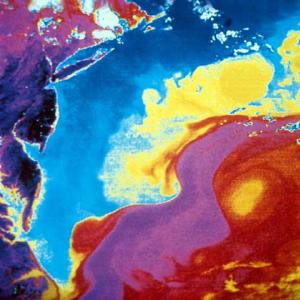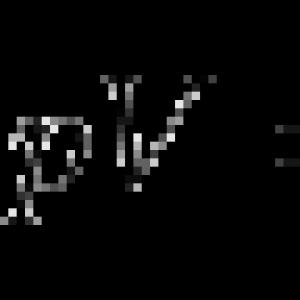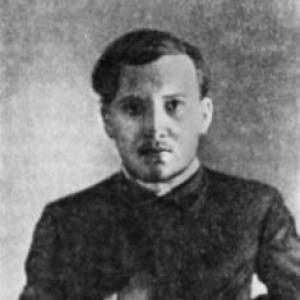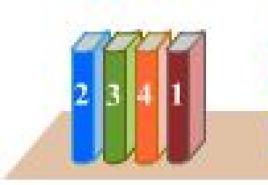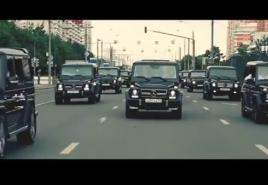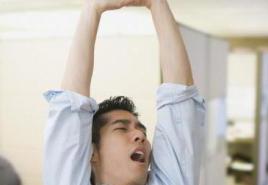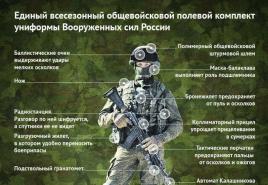How to start preparation for the exam on history. EGE on history: Disassemble tasks with a teacher What topics in the history of history
Pupils of 10 and 11 classes are thinking about where they will come after graduation, which items will need to be submitted to enter the higher educational institution and how best to prepare for the exam on history, mathematics, Russian language and physics.
Most students belong to humanitarians, and therefore, they will hand over the social studies, literature and history. However, preparations for these subjects are not easier than the exam in physics or chemistry, therefore it is worth knowing several important points to successfully pass the exam.
What are the features?
How to prepare for the exam on history? Annually the structure of tasks for different subjects, including on history, changes, but the essence remains. For example, considering the features of the history exam in 2017, it is worth noting that it will consist of 2 parts and 25 tasks, where for 19 questions you need to give a brief answer, and on 6 - deployed. All tasks have their own level of complexity: from the base to high, each is estimated by points.
For the correct answer to the simple question, 1 point can be obtained (for example, on the first task), and for the full, correct and detailed response of the latest issues of the list (for example, for 25 tasks) can be obtained from 1 to 11 points, so it is important to understand how it is correct Prepare for the exam on history.
The fulfillment of the entire examination work is given 4 hours, and the student needs to properly distribute its time by spending on simple questions from 1 minute to 7, and on complex - up to 40-60 minutes.
Features of preparation to the second part of history
Separately, it is worth noting that the second part of the history exam is more complicated and requires a detailed answer to the question. It will not be enough to know the exact date of the event that happened, the student will require reasoning to different topics, so it is important to determine how to prepare for the exam on history.
For example, you need to analyze a specific event or problem. To do this, it is necessary to identify historical facts and phenomena, indicate historical objects, to carry out a causal relationship, compare objects or processes and make a certain conclusion.

The second part of the exam requires long and special preparation, deep knowledge of history with points of view of several experts and the statement of his opinion.
How much you need to prepare for the history of history
Questions that will be on the exam can be the most different, including topics that have been completed in 5 or 6th grade (for example, about ancient Egypt, Greece or Rome). Therefore, you need to give yourself the installation that we are preparing for the exam on the story from scratch, studying the most ancient worlds. It is recommended to start in the 10th grade in order not to rush to work out all your questions: read information, solve various tests, perform tasks.
Before learning to study, it is worth making up a work plan, create a chronological table where important dates and events will be recorded, which may be a prompt for repetition of the material passed.

In the process of studying a certain period, it is recommended to look for information not only from the textbook. A good complement to gaining knowledge will be viewing a documentary film or listening to the report of the famous scientist.
If the preparation for the exam will begin only in grade 11, then more than it is likely that there will be no place for in-depth study of the subject. Then the material must be divided into large periods in which it is important to memorize the main events, keywords, wars and reforms.
What are the ways to prepare
Every student knows someone able to engage in independently and does not need outsiders. Someone better remembers the material if he is engaged in a tutor. Before starting to prepare for the exam, decide how you comfortably study the subject and what result you expect in the end. One will suit the minimum score, another need a high score, for which it is better to prepare for the exam with the teacher.

In any case, you need to read, constantly solve tests, watch movies. You can work out the tasks of past years that are in the open access on the Internet. This will help understand their structure, determine your level of knowledge and give an assessment of our own preparation.
Preparing for the exam on history from scratch yourself
Independent training requires certain efforts, faith in their knowledge and the ability to properly distribute time. Before you begin to study the material, you need to understand how to prepare for the exam on history, stock textbooks, geographical maps, tests, notebook and handle.

The next step is to determine how much time it will be needed to study the topic, where it is important not only to read, but also thoughtfully analyze the information obtained, reaches it with a time-learning card, prescribing important dates, names and events. Next, you can pass the test that it will help to consolidate knowledge.
No need to memorize all the dates in a row, because everything is unrealistic to remember them. It is important to make a system, linking dates with periods of history and key individuals that appeared at the time. Such associative memory will help remember the material much more and wider.
We use time management when preparing
Time management is a time management science that can be used both in work and in life, in particular, when preparing for exams. You can use different techniques, but they will all come down to several simple rules:
- If you have to disassemble a big topic, it is better to break it into a few small, which will allow you to study it deeper and thoughtfully.
- It is worth "right", measuring, for example, to absorb the material for 30 minutes. Even if during this time it was not possible to study the whole topic, then it is necessary to take a break for 5 minutes, and then after a small rest, continue learning again.
- It is necessarily recommended to create a working mood, for example, to settle in place, where the topic is best remembered. Not everyone can teach, lying on the sofa or listening to music. Therefore, you need to choose a desktop where the books will lie, notebooks with handles and cards.
Basic mistakes
All students in preparing for the exam make certain errors, but they can be avoided if it is properly approached to the study of the subject. Let it be the history of Russia. Preparing the exam and do not make frequent errors.

You should not begin preparation a week before the exam, even if you need to dial the minimum number of points. When reading all the material in a few days, the memory will save little information.
If you just read the materials on the story, without fixing them, then, most likely, most of them will be forgotten. Therefore, after studying the topic, you can go through the test for the studied topic or ask friends or parents to ask specific questions, and you gave the deployed answers.
If you begin to prepare for the exam in advance, you should not pay the study at first all day, and then take a break for a few days. You devote every day for 2 hours, and the information will be easier to digest.

The history of history will give a lot of schoolchildren. Balls will be useful on such humanitarian faculties such as jurisprudence, political science, journalism. Many people think that this subject is complicated, but it is not quite so. The average score is low compared to geography or.
The biggest gaps in knowledge cartography, cultural studies. Many cannot compare the events of domestic and foreign history, confusion arises with historical personalities.
The largest number of incorrect answers in the second part. It is necessary give arguments to confirm the possession of theses.
In the last part write an essayWith which there are also a lot of problems. If the schoolboy did not teach the story in the 7th, nor in the 8th grade, then it is necessary to start with Azov, namely from chronology. For the exam, you need to know all events in the chronological sequence.
Also need learn all dates, and there are many of them. On the exam, all dates are checked up to day. Many come to despair when they see what kind of information layer must be learned.
How to memorize events and dates
The study of history begins with the uprising of the Rus, the Baptism of Russia, etc. These events took place in the 10th century, respectively, remember and learn significant personalities - princes. To each "bind" an event to be easier to remember.
When studying history, you will need to learn cartography. Take a person - Prince Oleg. On the map we look at how he expanded the territory and with whom he fought. Need to know, And if there are no illustrations in textbooks, then we look at the Internet. We draw attention to the buildings - who built the temple when, which contributed.
Some better remember the information when it is represented visually. This is an excellent way, as it is necessary to read a lot of material on the story and the illustrations will help you accurately remember important information.
There is a task in the second part that many schoolchildren fail. It is required to comprehend the text, specify the time, events, ruler. Next, you need to answer questions, write arguments to refutation or confirmation of the position.
For example, take one of the most significant events - baptism in Russia. It is necessary to write pluses and cons. For this you need consider materials from discussions. This questions are well versed in the lessons of history.
Another difficult task is an essay. There you need to define events. The greatest difficulties arise with the second period of the Board. It will be necessary to describe the event that happened as a consequence, what individuals are connected with it. It may fall out the event from Rurikovich, Romanov or Soviet period.
You need to start training in advance, especially if you are preparing from scratch. By April, you already have to have a clear picture of events and all the rest of the time you devote to the processing of knowledge, complex tasks.
To prepare well to understand, for which you pass the subject. For example, points are required for admission to a military school or to the Faculty of Law. After you get a diploma with great probability you will not have a comfortable life, because. You also need to determine how many points you need to dial. For example, 80 points. It is quite a lot, therefore it is worth an effort.
In the lessons you need to listen carefully to the teacher, make a note in the notebook, independently refine the material and if questions arise, it is not shy to ask them. You can discuss the preparation plan for the exam with the teacher. As a rule, at school there are additional training activities for the exam. They must be visited.
It is better to start earlier than later. If you can, take part in the Olympics on history. So you will work out and repeat the material again. If you don't know anything about the story to the 11th grade, then do not worry - there is still time.
Clearly pay time for learning. Ideally engage in two hours 3-4 times a week. To begin with, learn the theory, then go to the test solution. Also disassemble complex questions.
Exam preparation plan
- Learn the structure of the EGE. To pass well the exam you need to know what to write in each part. There are tasks with historical documents, cards, problematic issues on history, names, dates, concepts.
- Divide the preparations for the steps. The most optimal separation: the ancient Russian state, the decline of the state, the formation of a centralized state, the Board of Godunov, Romanov, Peter the Great, coups, etc.
Schoolchildren learn 35 weeks. One period is one week. It is better to rest on vacation, since you will have 13 weeks in stock, and this is enough to fix the material. To begin with, learn all the periods and only then decide the tests.
It is believed that up to 70% of the tasks are devoted to the 19-20th century, so it is not necessary to strongly focus on medieval history.
What materials are pleased
- Textbook For independent preparation for the exam on history. It is better to take advantage of the materials of the publishing house education or explore the profile textbook of Sakharov.
- Tables and schemes Create to memorize information in the form of schemes. Tutorials read also be sure.
- Atlasi stories.
- Video track on preparation for the exam.
- Texts for the preparation of. To begin with, explore all the material from the site of the FII.
How else to prepare for the exam
- Keep abstract. When you write your hand information, you remember better. Structure information, highlight an important color.
- Write the crib For challenging tasks (24, 25). but do not carry them on the exam.
- Slash demo materials On the FII website.
- Learn maps, geographic objects. Better to hang a map of Russia in the room. Often it is often required to specify the name of geographic objects, location of cities.
- If you need a high score, then you need teach culture. It is better to make a table with brands, posters, sculptures, architectural structures, paintings by artists.
- Work S. historical documents.
- See films by history.
Another important advice that will help independently prepare for the exam on history - to remember historical figures, year and event cut small cards. On one side you need to specify the ruler, and on other years of life or rule, events and a brief description of the activity. Form the decks and learn.
How to start, wondering all who are faced with the study of history. Remembers of times and forever - history subject story and structural.
What is the story of?
Like any humanitarian science history has a clear structure. It is according to her, FII specialists make an exam. To deal with it - the first step towards a conscious study of history.
In the exam, there are three types of assignments that inspect various aspects of discipline.
This is what the detailed scheme looks like that you need to understand and remember to work productively with the course in any form. There are rarely tutors about it, they are not studied in schools. Although nothing supernatural in it is not.
As you can see, the story is divided into just three structural categories: dates, plots and sources. For a successful study of the course, you need to understand the content of each of the categories and always relate any studied topic with this scheme, making up a "blind abstract".
On a particular example, we will understand: why this scheme is needed, which is understood under each of its components and how to apply it in solving the tasks of the USE.
Dates
Or then where to start learning history.
Historical dates set. In the network you can find huge dates lists that allegedly need to learn and you exactly hand over the exam. Tutorials are sisha thousands of dates. In fact, it is not necessary to teach 99% of them, and on the Internet, most of the publics lead schoolchildren who themselves do not know how to prepare for the exam.
The Date block consists of two components - basic and basic dates.
Basic dates are the main basis of history.It is from their study and need to begin preparation for the exam. Basic dates include: years of government of historical figures and their brief description. It will take about ten days to study the basis. After that, you can already be successfully started to study the course any way available to you.
What do we need?
To work with the rulers of Russia we will need the following table.

The algorithm of work with it is as follows:

In the course of viewing, we run on the "value" column issued by you and as soon as you reach the event, writing from you on the sticker, adding it to the date (there is in the video).
Summarize: You will have an understanding that the ruler is in front of you and with what it is eaten.
Then remains to remember its years of government. Take advantage of this method of "Interval Repeat". Just take up the rule every 15 minutes to pay attention to the sticker, after the first hour of repetitions - try to remember the years of the reign itself. If you are preparing with "zero", then transfer the years of reign and remember it.
Your goal is to build a history structure in the head: what ruler goes for whom and what role he played in the history of the country. Could have done with the first sticker? Go to the second.
The result of the work: the appearance of the basis of history in memory, the material studied will not turn into a "porridge in the head", and to line up in a clear structure. Pleel on this work for 10 days and I assure - your efforts will pay off.
How to understand what dates are needed, and what no?
A document comes to help you, which is called a historical and cultural standard.
On the exam, you will meet the dates that are contained in it and no more.
How to study the dates correctly, not to sharpen them and memorize in a matter of minutes - I tell during your weekly marathon. You can find the link above.
Thus, knowledge of dates and common scenes will give you the opportunity to effectively solve many of the tasks of the exam on knowing the dates and will cover a third of the tasks of the USE.
The tasks of the exam on the knowledge of historical dates




All these tasks check only one thing - knowledge of basic and basic dates.
Scenes
Go to the next part - plots.
History, it's like a series. there is the sequence of events where the other follows from one. As in the series there is here acting Persons - Historical Persons. As in the series, the story is filled with its specific words applicable only in a certain story - terms.
Each course of the course has its own PSS (causal relationships) - the causes and consequences of the event you study. It's like in life, the fact that you read this document has the reason - you decided to take the exam on history. And the consequence of this will be what you will correctly start preparing for the exam. Everything is simple.
So when you will continue to work with the course - each main date is looking for reason of why happened (for example) the Russian-Japanese war and the consequence of this war. Again, many tasks of the exam check this skill.
Historical Persons and Terms - Also An important thing. And they are also needed for passing the exam and understanding what you teach. What are the terms and which personalities to study, look in the historical and cultural standard.
Tip: Personality Always study in the context of the concept of "contemporary ruler." Having studied the basis, you will know dozens of rulers of our country. Personality Learn as people who lived during (for example) Peter the first.
So what tasks check the knowledge of the plots?
Tasks of the exam on knowledge of historical plots




As you can see, everything is simple and has a certain structure.
When studying the topic, for successful preparation, the main thing is to keep one thing in my head - any topic in the abstract should be laid on separate parts and always relate them to the historical and cultural standard. Then everything becomes wildly simple.
Sources
The last thing is to work. Moreover, work separately.
Sources we will dedicate separate instructions.
So far I will only say that their knowledge will provide you with the solution of the remaining tasks of the exam. All to one. Well, I want to delight you - all sources used on the exam, we have already known a long time ago.
- Cards. The exam compilers do not draw new cards every year. They are use ready-made pack of cards, and the same, every year. He is on my hands and our team. So you can also get it in a weekly marathon and to learn how to work with them.

- Culture. The main thing when studying culture notgo to reading books and benefits. This is generally a separate topic to which we will talk in the following instructions. It is important to understand that the culture on the exam ask the same: in the tasks use in advance famous illustrations, cultural monuments(from painting to architecture)

Thus, the path to the result is scheduled. Point "A" is, and your first task will be to explore the basis of the course of the rulers of Russia.
Explanatory note
The course program is designed for grade 11 students, motivated to pass an entrance exam in a university in the form of an exam.
The need to develop this program is due to the requests of students in understanding the strategy of actions in preparation for a single state exam.
In the tasks of the EGE there are questions traditionally causing difficulties from a relatively large number of students, ignoring this fact leads to shortcomings and errors in the answers.
The curriculum consists of 13 sections:
- Rus in the IX - early XII century.
- Russian lands and principalities in the XII - middle of the XV century.
- Russian state in the second half of the XV - XVII century.
- The culture of the peoples of our country from ancient times to the end of the XVII century.
- Russia in the XVIII - middle of the XIX century.
- Russia in the second half of the XIX - early twentieth century.
- Russian culture in the XVIII - early twentieth century.
- Soviet Russia - USSR in 1917-1941.
- Russia in 1941-1945
- Russia in 1945-1991.
- 1917-2013. Culture
- Russia in 1992-2013
- Working with part of the "C" of the history.
Requirements for the level of graduates in the history of history formed in classes
Know (understand):
- the main dates, stages and key events of the history of Russia and the world with antiquity to the present day;
- outstanding figures of domestic and universal history;
- the most important achievements of culture and system of values \u200b\u200bthat have formed during the historical development;
- learned types of historical sources
Be able to:
- relate the dates of the events of domestic and universal history with the century;
- determine the sequence and duration of the most important events of domestic and universal history;
- use data from historical and modern sources when answering questions, solving various learning tasks; compare evidence of different sources;
- show on the historical map of the territory of the peoples, borders of states, city, places of significant historical events;
- talk about the most important historical events and their participants, showing knowledge of the necessary facts, dates, terms;
- give a description of historical events and cultural monuments based on text and illustrative material, fragments of historical sources;
- use acquired knowledge when drawing up a plan and writing creative work (including writings);
- relate common historical processes and individual facts;
- identify essential features of historical processes, phenomena and events;
- group historical phenomena and events on a given feature;
- explain the meaning of the studied historical concepts and terms
- identify the commonality and differences of compared historical events and phenomena;
- determine the causes and consequences of the most important historical events;
- explain their attitude to the most significant events and personalities of the history of Russia and universal history, the achievements of domestic and world culture
- Introduction to political science: book for students of high schools / G. S. Gadzhiev - M., 1999.
- History of Russia XX-beginning of the XXI century. Grade 11. / Levandovsky A. A., Shchetinov Yu. A., Mironenko S. V. - M., 2011.
- Russian history. From ancient times before the beginning of the XXI century. In 2 volumes. / Edited by Sakharov A. N. - M., 2003.
- State and church in Russia. XX century. / Odintsov M. I. - M., 1994.
AND noternet - Resources
- 1. http://www.mon.ru. . gov.ru. - Official website of the Ministry of Education and Science of the Russian Federation
- 2. http://www.fipi.ru. - Portal of the Federal Institute of Pedagogical Measurements
- 3. http://www.school.edu.ru. - Russian general education portal
- 4. http://www.elibrary.ru/defaultx.asp. - Scientific electronic library 5.http://www.standart.edu.ru. - State Educational Standards of the second generation
Training plan for the exam on history.
The name of the sections and themes. | Clock | Homework | Plan. | Fact |
|
Section 1. Rus in the IX - early XII century. |
|||||
1.1. Peoples in Russia until the middle of the I millennium BC. Eastern Slavs: resettlement, neighbors, classes, social system. Paganism 1.2. Novgorod and Kiev are the centers of the Old Russian statehood. Education of the ancient Russian state 1.3. Vladimir I. Baptism of Russia. Yaroslav Wise. "Russian truth". Vladimir Monomakh | |||||
Dough solution | Solve 1 option | ||||
Section 2. Russian Earth and Principality in the XII - middle of the XV century. |
|||||
2.1. Political fragmentation of Russia 2.2. Fight against external aggression in the XIII century. Mongolian conquest. Expansion from the West. Alexander Nevskiy 2.3. Fight against external aggression in the XIII century. Mongolian conquest. Expansion from the West. Alexander Nevskiy 2.4. The beginning of the unification of Russian lands. Ivan Kalita. Dmitry Donskaya. Kulikovskaya battle 2.5. The role of the church in the public life of Russia. Sergius of Radonezh | Repeat the main dates, concepts | ||||
Dough solution | Solve 2 option | ||||
Section 3. The Russian state in the second half of the XV - XVII century. |
|||||
3.1. The overthrow of the Goldenordinian yoke. Ivan III. Completion of the union of Russian lands. The formation of the authorities of the Russian state. Faulician 1497 3.2. Ivan IV Grozny. The establishment of royal power. Mid XVI reforms. Zemsky cathedrals. Official. Expansion of the territory of the state (the accession of Kazan and Astrakhan Khanate, Western Siberia) 3.3. Time of Troubles. Fight against external expansion. K. Minin. D. Pozharsky4.4. Russia at the first Romanovs. Cathedral Code of 1649. Legal registration of serfdom. Church split. Nikon and Avvakum 3.4. Russia's foreign policy in the XVII century. The entry of the left bank of Ukraine in Russia | Repeat the main dates, concepts | ||||
Dough solution | Solve 3 Varia Ant | ||||
Section 4. Culture of the peoples of our country from ancient times until the end of the XVII century. |
|||||
4.1. The formation of ancient Russian culture: folklore, writing, painting, architecture. Formation of the culture of the Russian state. Lettering. Andrei Rublev. Typography. Ivan Fedorov | Repeat the main dates, concepts | ||||
Dough solution | Repeat | ||||
Offset "Russia in the IX-XVII century" | Repeat | ||||
Section 5. Russia in the XVIII - middle of the XIX century. |
|||||
13-15 | 5.1. Transformation of the first quarter of the XVIII century. Peter I. Absolutism. Creating a regular army and fleet. North War 5.2. Palace coups. Expansion of the rights and privileges of the nobility 5.3. Enlightened absolutism Catherine II. Registration of a classroom building 5.4. Alexander I. Domestic and foreign policy 5.5. Internal and foreign policy of Nicholas I. | Repeat the main dates, concepts | |||
Dough solution | Repeat | ||||
Section 6. Russia in the second half of the XIX century. XX century |
|||||
17-19 | 6.1. Internal and foreign policy Alexander II. Abolition of serfdom 6.2. Internal and foreign policy of Alexander III. 6.3. Public movements of the second half of the XIX century. 6.4. Domestic and foreign policy of Alexander III 6.5. The exacerbation of social contradictions under modernization. Revolution 1905-1907 The State Duma | Repeat the main dates, concepts | |||
Dough solution | Decision 4 option | ||||
Section 7. Russian culture in the XVIII - early twentieth century. |
|||||
7.1. Science and education. M.V. Lomonosov. N.I. Lobachevsky. DI. Mendeleev. Literature and art. | Repeat the main dates, concepts | ||||
Dough solution | Repeat | ||||
Section 8. Soviet Russia - USSR in 1917-1941. |
|||||
23-24 | 8.1. Revolution in Russia in 1917. The fall of the monarchy. Temporary government and advice. 8.2. Civil War. Red and white. "Military Communism" 8.3. New economic policy. Education of the USSR 8.4. Industrialization. Collectivization of agriculture. Indigenous changes in spiritual life. 8.5. USSR in the system of international relations in the 1920s and 1930s. | Repeat the main dates, concepts | |||
Dough solution | Repeat | ||||
Section 9. Russia in 1941-1945 |
|||||
26-27 | 9.1. USSR in World War II. The beginning, stages and the largest battles of the Great Patriotic War 1941-1945. Battle for Moscow. Stalingrad battle. Battle on the Kursk arc. Native Fracture during the war 9.2. Soviet rear during the war years. Partisan traffic. USSR in antihytler coalition 9.3. The results of the Great Patriotic War. Soviet commander. GK Zhukov. Post-war recovery of the economy | Repeat the main dates, concepts | |||
Dough solution | Repeat | ||||
Section 10. Russia in 1945-1991 |
|||||
29-31 | 10.1. "Thaw". XX Congress CPSU. N.S. Khrushchev 10.2. "Stagnation". L.I. Brezhnev. The crisis of the Soviet system 10.3. Foreign policy of the USSR in 1945-1980. Cold war. Discharge 10.4. Perestroika. Contradictions and failures of the "Acceleration" strategy. Democratization of political life. M.S. Gorbachev | Repeat the main dates, concepts | |||
Dough solution | Solution 5 option | ||||
Section 11. Russia in 1917-2013. Culture |
|||||
11.1. Socialist realism in literature and art. Achievements of Soviet Education, Science and Technology | Repeat the main dates, concepts | ||||
Section 12. Russia in 1991-2013 |
|||||
35-36 | 12.1. Education of the Russian Federation as a sovereign state. B.N. Yeltsin. Transition to a market economy. Adoption of the Constitution of the Russian Federation 12.2. Russian Federation in 2000 - to the present: the main trends in the socio-economic and socio-political development of the country at the present stage. V.V. Putin. YES. Medvedev | Repeat the main dates, concepts | |||
37-38 | Working out of the tasks of part A and V. | Repeat | |||
Section 13. Working with a part "C" of the history of history |
|||||
39-42 | 13.1. Working with the source. The ability to characterize the authorship, time and objectives of creating a source. The ability to tell the search for historical information (tasks C1-C2 in the exam on history) 13.2. The ability to use the principles of structural and functional, temporary and spatial analysis of the review of the facts, phenomena, processes (tasks C3-C4 in the history of history) 13.3. The ability to formulate your own position on the issues discussed (tasks C5 in the history of history) 13.4. The ability to present the results of historical and cognitive activity in free form with the orientation to the specified parameters of the activity (tasks from 6 in the history of history) | Repeat the main dates, concepts | |||
43-44 | Kimov's decision | Repeat the main dates, concepts | |||
45-46 | Work on bugs | Repeat | |||
Trial ege | |||||

